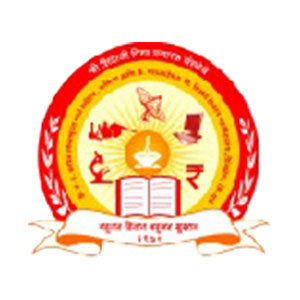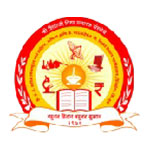Code of Conduct

Code of Conduct
PRINCIPLE I: Ethical Conduct toward Students
The professional educator accepts personal responsibility for teaching students character qualities that will help them evaluate the consequences of and accept the responsibility for their actions and choices. We strongly affirm parents as the primary moral educators of their children. Nevertheless, we believe all educators are obligated to help foster civic virtues such as integrity, diligence, responsibility, cooperation, loyalty, fidelity, and respect-for the law, for human life, for others, and for self.
The professional educator, in accepting his or her position of public trust, measures success not only by the progress of each student toward realization of his or her personal potential, but also as a citizen of the greater community of the republic.
- The professional educator deals considerately and justly with each student, and seeks to resolve problems, including discipline, according to law and school policy.
- The professional educator does not intentionally expose the student to disparagement.
- The professional educator does not reveal confidential information concerning students, unless required by law.
- The professional educator makes a constructive effort to protect the student from conditions detrimental to learning, health, or safety.
- The professional educator endeavours to present facts without distortion, bias, or personal prejudice.
PRINCIPLE II: Ethical Conduct toward Practices and Performance
The professional educator assumes responsibility and accountability for his or her performance and continually strives to demonstrate competence.
The professional educator endeavours to maintain the dignity of the profession by respecting and obeying the law, and by demonstrating personal integrity.
- The professional educator applies for, accepts, or assigns a position or a responsibility on the basis of professional qualifications, and adheres to the terms of a contract or appointment.
- The professional educator maintains sound mental health, physical stamina, and social prudence necessary to perform the duties of any professional assignment.
- The professional educator continues professional growth.
- The professional educator complies with written local school policies and applicable laws and regulations that are not in conflict with this code of ethics.
- The professional educator does not intentionally misrepresent official policies of the school or educational organizations, and clearly distinguishes those views from his or her own personal opinions.
- The professional educator honestly accounts for all funds committed to his or her charge.
- The professional educator does not use institutional or professional privileges for personal or partisan advantage.
PRINCIPLE III: Ethical Conduct toward Professional Colleagues
The professional educator, in exemplifying ethical relations with colleagues, accords just and equitable treatment to all members of the profession.
- The professional educator does not reveal confidential information concerning colleagues unless required by law.
- The professional educator does not wilfully make false statements about a colleague or the school system.
- The professional educator does not interfere with a colleague’s freedom of choice, and works to eliminate coercion that forces educators to support actions and ideologies that violate individual professional integrity.
PRINCIPLE IV: Ethical Conduct toward Parents and Community
The professional educator pledges to protect public sovereignty over public education and private control of private education. The professional educator recognizes that quality education is the common goal of the public, boards of education, and educators, and that a cooperative effort is essential among these groups to attain that goal.
- The professional educator makes concerted efforts to communicate to parents all information that should be revealed in the interest of the student.
- The professional educator endeavours to understand and respect the values and traditions of the diverse cultures represented in the community and in his or her classroom.
- The professional educator manifests a positive and active role in school/community relations.
The UGC circular states that teachers should try to see through teachers’ bodies and organizations, that institutions maintain contact with the guardians, their students, send reports of their performance to the guardians whenever necessary and meet them in meetings convened for the purpose for mutual exchange of ideas and for the benefit of the institution. It also directs teachers to respect the right and dignity of the student in expressing his/her opinion, deal justly and impartially with students regardless of their religion, caste, political, economic, social and physical characteristics, recognize the difference in aptitude and capabilities among students and strive to meet their individual needs.
Further, it calls upon the teachers to encourage students to improve their attainments, develop their personalities and at the same time contribute to community welfare, inculcate scientific outlook and respect for physical labour and ideals of democracy, patriotism and peace.
Teachers have also be told to be affectionate to the students and not behave in a vindictive manner, make themselves available to the students even beyond their class hours and aid students to develop an understanding of our national heritage and national goals. Teachers should also refrain from inciting students against other students, colleagues or administration.
As a part of their social duty, teachers have also been asked to strengthen the community’s moral and intellectual life, take part in activities conducive to the progress of society, participate in community activities and shoulder responsibilities of public offices and refrain from any activity which promotes differences in the name of caste, faith, language etc.
Calling upon the teachers to lead by example, the circular states: “A teacher is constantly under the scrutiny of his students and the society at large. Therefore, every teacher should see that there is no incompatibility between his precepts and practice… teachers should manage their private affairs in a manner consistent with the dignity of the profession, express free and frank opinion as well as participate in extra-curricular activities including community service.”
Teachers should, the UGC expects, treat colleagues in the same manner as they themselves wish to be treated and consider non-teaching staff as equal partners. It also asks teachers to refrain from undertaking private tuitions and coaching classes, cooperate in the formulation of policies of the institution by accepting various offices and refrain from taking leave except on unavoidable circumstances.
Rules and Regulations for Students
- Every student shall attend classes regularly and punctually.
- Every student is required to maintain a minimum of 75% attendance separately for lectures, tutorials and/or practical conducted for each semester / term, failing which the terms will not be granted, and the student cannot appear for the term end and/or annual examination conducted by the College on behalf of the University / Board or by the University or by the Maharashtra Board.
- Every student shall carry Identity card in the college premises.
- Students must not do anything inside or outside the college that will in anyway interfere with its orderly administration and discipline.
- Students are liable to lose their term for disobedience, misbehaviour, or for any act of indiscipline.
- Students are expected to take proper care of college property and help the college authorities in keeping the premises clean. Damaging college property e.g. disfiguring walls, doors, fittings or breaking furniture, misuse of fittings, or breaking furniture etc., is breach of discipline, and the guilty will be duly punished.
- Smoking, Tobacco-chewing and consumption of alcohol are strictly prohibited in the College premises.
- Use of Mobile Phones, I-pods, I-pad, Laptops etc in college premises is strictly prohibited.
- No association or organization shall be formed, no meeting shall be held, no person will be invited to address the students in the college without the prior written permission of the Principal.
- No picnics, socials, excursion or tours shall be arranged without the prior permission of the Principal. If students join an unofficial picnic or tour, the College shall not be responsible for anything that happens in the picnic or tour.
- No students shall collect money as contribution to picnic, trip, educational visit, get-together, study notes, charity or any other activity without the prior permission of the Principal.
- Ragging is strictly prohibited in the college premises and outside. Students indulging in ragging will be punished as per “The Maharashtra Prohibition of Ragging Act, 1999- (Mah. XXXIII of 1999) Published in Maharashtra Govt. Gazette on 15th May, 1999”. Such students will also be expelled from the college and F.I.R will be lodged in the police Station against them.
- Students must not loiter on the College premises while the classes are going on.
- No student shall communicate any information or write about matters dealing with the College administration to the Press.
- The College is not responsible for lost property or valuable things. However, Student may make a claim for lost property at the office, if it is found in the College Office.
- Students applying for certificates and testimonials require the Principal’s signature after the application, documents and testimonials will get after a week time.
- Students joining the college are bound by the rules and regulations of the college.
- Matters not covered by the existing rules will rest at the absolute discretion of the Principal.
Code of Conduct for Teachers
- All teaching staff must wear Uniform every day.
- Discrimination is prohibited against any applicant in hiring, promotions, demotions, discharge or other aspects of employment on the basis of that person’s disability.
- Drug, alcohol and smoking things are prohibited in the college premises. If any employee found guilty of practicing such things shall be punished accordingly.
- Sexual harassment of employee or students in the college premises is prohibited and shall subject the offender to dismissal or other appropriate disciplinary action.
- Teachers shall not unreasonably restrain the students from independent action in the pursuit of learning.
- No teacher shall exclude or discard any students on the basis of race, colour, creed, sex, national origin, marital status, political or religious belief, family, social or cultural background and any other relevant subject.
- No teacher shall use professional relationships with students for private advantage.
- No one can leave the college without informing the Principal in between College hours.
- Use of mobile phones during the lecture is strictly prohibited. If found violating this rule, the mobile phone may be confiscated for the whole day keeping it switched off.
- All the works assigned to the teacher must be done with honesty and dedication. Any laxity in doing one’s duty shall be intolerable and disciplinary action may be taken against him/her.
- Application for grant C. L. (Casual Leave) or any other Leaves for preplanner/prescheduled programmes must be given in advance.
- All kinds of Leave for teachers are given as per University rules and Maharashtra Government Statutes with prior permission of the Principal.
- Teachers have to finish syllabi in the stipulated time. The progress of the teaching shall be watched and monitored by Principal and the Management.
- Teachers must have to cooperate in all college activities even if on Sundays or Holidays.
- An employee, against whom criminal proceedings are initiated in a Court of Law, shall immediately inform the competent authority of the College regarding the details thereof.
- An employee of the college should avoid actual or apparent conflict of interest between his college’s obligations and responsibilities and outside activities.
- All teachers are required to come before the scheduled time of the College, before the final bell rings and be in the classroom within time.

